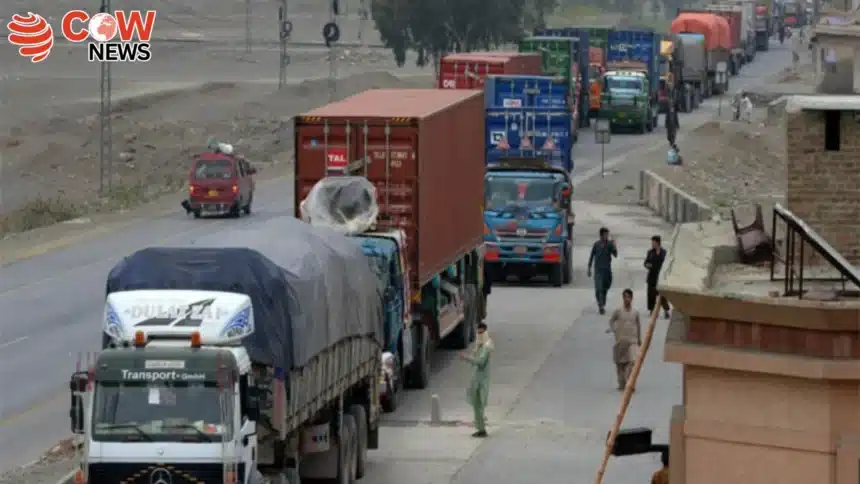Chaman/Torkham( The COW News Digital) The ongoing Pakistan-Afghanistan border closure has entered its 13th consecutive day, severely disrupting cross-border trade and leaving hundreds of cargo trucks stranded on both sides. The closure, a result of heightened bilateral tensions and recent clashes, has caused massive economic losses and spoilage of perishable goods.
According to customs officials, Chaman’s Bab-e-Dosti (Friendship Gate) remains closed for all trade activities, with only vehicles carrying Afghan nationals returning home allowed to cross into Afghanistan. Over 10,000 Afghan citizens have reportedly been repatriated since the clashes began, while 1,200 empty containers have re-entered Pakistan.
Despite repeated appeals from traders, debris from affected trade routes and damaged infrastructure in the border zones has yet to be cleared. Authorities have suggested that transit container movement may resume in phases once the Bab-e-Dosti gate reopens.
Hundreds of freight trucks and containers are stuck along key trade corridors, particularly on the Chaman-Karachi route, where drivers report that fresh produce, meat, vegetables, and juices are rapidly spoiling due to the extended delay.
The border closures extend beyond Chaman — with major crossings at Torkham (Khyber District), Kharlachi (Kurram), Angoor Adda (South Waziristan), and Ghulam Khan (North Waziristan) also sealed. Long queues of vehicles stretch for miles on both sides of the frontier, worsening economic pressures for traders dependent on the Afghan transit trade.
Local transporters warn that millions of rupees worth of goods have already been lost. “Our trucks are loaded with fruit and vegetables that are now rotting. The longer the closure continues, the greater our financial losses,” said one transporter in Chaman.
Officials from both countries have yet to announce a clear timeline for reopening the crossings, though preliminary discussions are reportedly underway to ease restrictions for humanitarian and commercial shipments.
The prolonged closure follows clashes earlier this month between Pakistani and Afghan border forces, which led to multiple casualties and heightened political tension. The two sides have since accused each other of provocations and violations, deepening the standoff.
Analysts warn that continued border disruptions could further strain the already fragile trade and diplomatic relations between Islamabad and Kabul, with ripple effects on regional supply chains and local economies.








